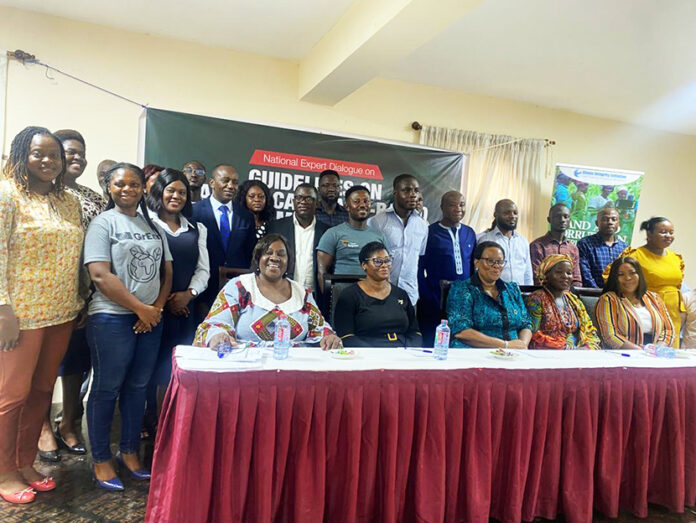The Ghana Integrity Initiative (GII) has organised a National Expert Dialogue on the Guidelines for Large-Scale Land-based Investment in Ghana.
The event, attended by key stakeholders from government agencies, civil society organisations, the private sector, academia, media and development partners is aimed at fostering open exchange of knowledge and developing effective guidelines for land investments.
Importance of Land
In a welcome address read on behalf of Mary Awelana Addah, Executive Director of GII, she emphasised that “Land is not only a vital economic resource as recognised by the Food and Agriculture Organisation (FAO), but also a cornerstone of heritage, identity and livelihood for millions of Ghanaians.”
Challenges
She highlighted the shifting dynamics of global food demands and economic development, which have ushered in a new era of large-scale land acquisitions.
“While these investments hold the promise of enhanced food production and economic growth, they also present a complex set of challenges,” Madam Addah noted.
Issues such as corruption, unequal land access for women and environmental sustainability concerns, as documented by the International Land Coalition (ILC) were brought to the forefront.
Objectives of Dialogue
The objectives of the national dialogue, according to her are aimed at addressing these challenges through several key objectives such as;
Creating a Platform for Informed Dialogue: Foster an open exchange of knowledge and experiences regarding the LSLBI guidelines.
First, identifying Challenges and Opportunities by working together to identify potential roadblocks and opportunities associated with large-scale land investments.
Secondly, is by developing Strategies for effective implementation and ensure that guidelines are implemented in a transparent, equitable and sustainable manner.
Thirdly, to developing a policy brief with recommendations from the dialogue will be instrumental in achieving this aim.
Structure of the Dialogue
The dialogue was structured around thematic sessions addressing key issues related to LSLBIs, such as land governance, community participation, environmental sustainability, and social responsibility.
Madam Addah emphasised the critical role of stakeholder participation, stating, “The success of this dialogue hinges on the active participation of all stakeholders present today.”
Government Agencies were called upon for their leadership and commitment to transparent implementation of the guidelines. “Your leadership is crucial in ensuring that these investments benefit all Ghanaians,” Addah urged.
Civil society organisations were recognised for their vital role in advocating for responsible land use and protecting community rights.
Madam Addah highlighted, “Your voices are essential in ensuring that land investments are equitable and sustainable.” Private sector entities were encouraged to adopt responsible investment practices that balance business interests with community well-being.
Development Partners
Academia and research institutions were tasked with providing the necessary research and knowledge to inform best practices and policy development.
The media’s role in raising awareness and fostering transparency was also underscored. “You play a vital role in holding all stakeholders accountable,” Addah noted.
Guidelines
Raphael Hokey, Head of the Regional Operations Unit at the Lands Commission, detailed the guidelines for large-scale land transactions in Ghana.
The process, involving pre-acquisition, concurrence, and post-acquisition stages, applies to stool and family land grants exceeding specified sizes for residential, agricultural, and industrial purposes.
“These guidelines ensure that large-scale land transactions are forwarded to the Lands Commission for concurrence before registration,” Hokey explained.
Transparent Mechanisms
Michael H. Okai, Coordinator at GII, emphasised the importance of transparent and accountable mechanisms for land governance.
“To align land-based investments with Ghana’s sustainable development goals, we must establish enforceable guidelines that ensure equitable distribution of land resources,” Okai asserted.
Picture -Experts and Dignitaries in a photo together









